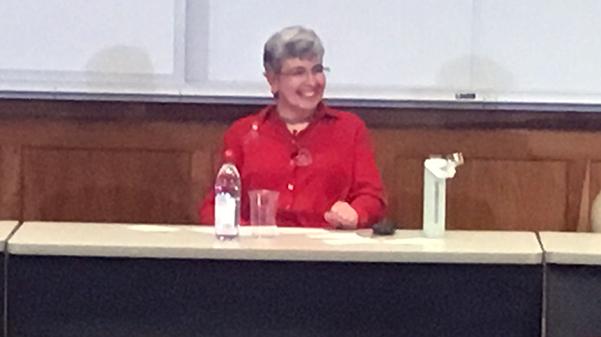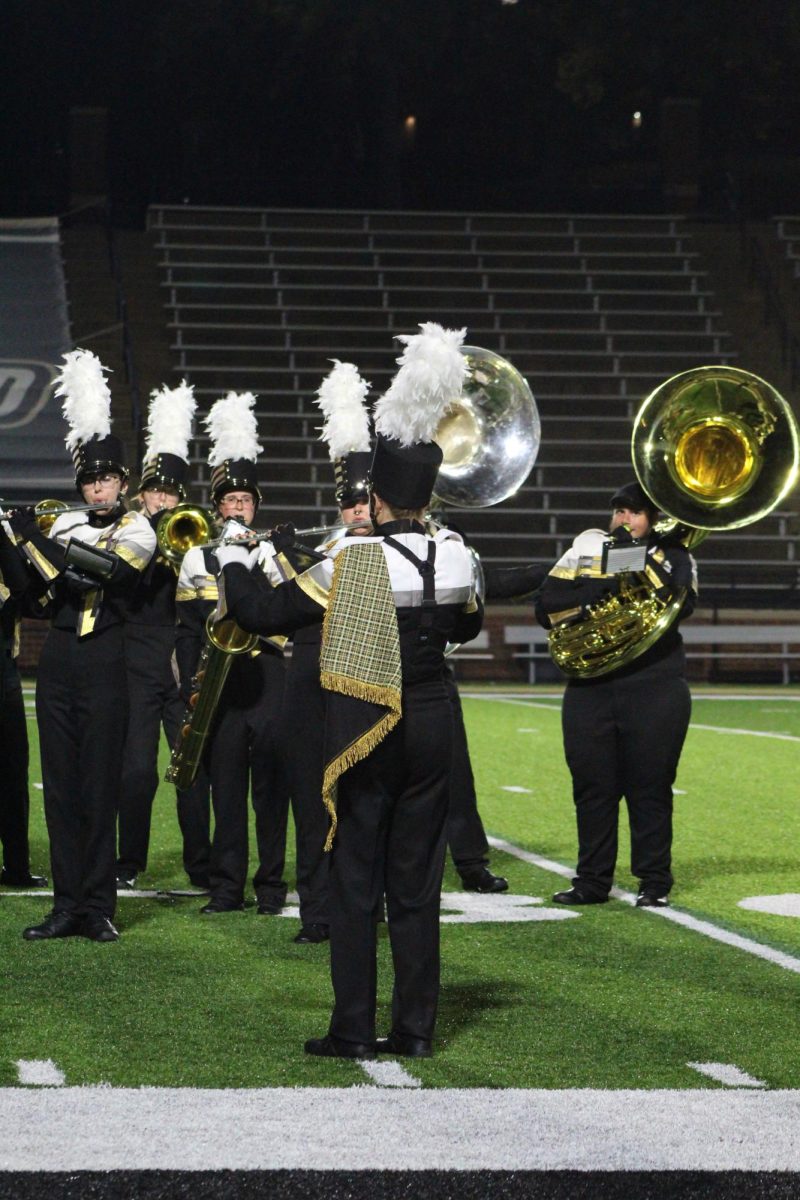J.T. BUCHHEIT | Chief Copy Editor
Lindenwood played host to author Ann Leckie on Wednesday, April 25, in the Dunseth Auditorium. Many aspiring authors were in attendance to ask questions about her novels and how to craft stories.
Leckie, 52, is best known for her “Imperial Radch” trilogy, consisting of the books “Ancillary Justice,” “Ancillary Sword” and “Ancillary Mercy.” These novels won many prestigious awards, including the 2014 Hugo Award for Best Novel for “Ancillary Justice.”
Science fiction and fantasy are Leckie’s genres of choice. She said she has been a science-fiction fan since she was little.
“I occasionally tried to write realistic fiction, and I usually get bored very quickly,” Leckie said. “There’s fabulous realistic fiction, and I’ve read it and really enjoyed it a lot, but writing it for some reason, I always want to throw in the aliens.”
The “Imperial Radch” series is unique in that it uses female pronouns for everybody in the series, even for those later revealed to be male.
“I was trying to hold on to the idea that what if our standards of beauty were not biological standards of beauty, but a question of what cultural assumptions are of who’s in power,” Leckie said.
“Ancillary Justice” was the subject of controversy for the “Sad Puppies,” a voting campaign some authors started in an attempt to nominate works they found more deserving of the awards. They believed the awards were slanted in favor of novels with more progressive themes.
Leckie stayed quiet throughout the controversy and said there were a couple reasons for this.
“I mostly haven’t weighed in partly because other people have weighed in and said things, and also partly because in some respects, I refuse to dignify them with a reply,” she said. “… But it was notable that most of the puppies didn’t spend a whole lot of time specifically critiquing my work because most of them haven’t taken the time to read it.”
Leckie stressed that research is very important in science fiction. She said people should make a choice about whether they want to pay attention to physics, but it shouldn’t bog people down and hinder their writing.
“If you find that you’re researching for years into little details and not writing, you need to stop researching,” she said. “Research is really super important, but if you go a year without putting a word down, and you’re still looking at what kind of pan someone used in 1953, you need to stop, because you can look that up as you write.”
Leckie also mentioned that many authors try to find excuses not to write, a tactic that she called “cat vacuuming.”
“You sit down to write, and then all of a sudden, you go, ‘Oh, the cat has not been vacuumed for months. I have got to vacuum that cat.’ So that’s cat vacuuming: the stuff you do to avoid writing. Sometimes it’s useful; actually sometimes scrubbing the bathtub gets you into a zone in your head where the back of your mind is working, and you go ‘Oh!’”
Leckie said she sometimes takes fans’ comments about her work into account, but other times, she disregards them. “Ancillary Sword” was one book where she listened to some fans’ comments about how to improve her work.
“There are some things in ‘Ancillary Sword’ that are explicitly said on the page, because I had seen some conversations in other places, and I thought, ‘First of all, that’s a thing that I was only half thinking about, and secondly, there are people who really need to have this thing on the page,’” she said.
Although it can take authors a long time to get their works published, Leckie encouraged them not to give up.
“The published are the persistent,” she said. “Don’t forget that.”
Leckie’s next novel. “The Raven Tower,” is set to release in early 2019.









